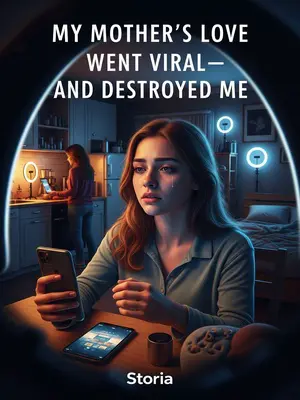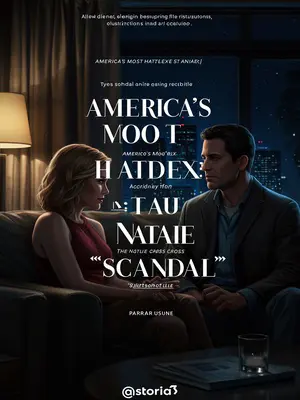Chapter 3: Tears and Thunderous Applause
Once I was on stage, the lighting team followed my design: first, the lights and AI projection created a scholar figure. I pinched my thigh hard, tears welling up. Slow and steady, I arranged my sleeves and walked out. With tears in my eyes, I looked at the man made of light—a hologram, shimmering, not quite real. At that moment, I was Juliet. And that man was not just Romeo, but also the industry I was about to be forced out of. The metaphor stung—like saying goodbye to something you love and can’t hold onto. Thinking of that, my chest tightened, and I nearly lost it right there.
The air was thick with anticipation. I let the moment hang, letting the emotion build until it felt like the whole room was holding its breath with me. You could practically hear a pin drop.
I began: “Who knew all those brilliant blossoms would fall, left to crumble among broken dreams and empty halls—” (An original lyric I’d written, but with a Broadway flair.)
My voice trembled at first, but I leaned into the vulnerability. The melody soared, and I let myself get lost in the story, in the longing and regret. I could feel the audience leaning in, caught up in the moment. Even the judges seemed to be holding their breath.
Apparently no one expected me to perform an old-school Broadway number. There were whispers of surprise from the contestants’ seats.
A few jaws dropped. Even the mentors looked up from their notes. I caught a glimpse of someone mouthing, “Is this really happening?” My heart fluttered.
When the song ended, my fingers passed through the scholar’s form—Romeo vanished, like a dream you can’t hold onto. I looked up at the camera, on the verge of tears. The judges and contestants sat in stunned silence. After a long moment, the applause erupted—so loud it felt like the floor shook beneath me.
It was the kind of applause that felt real—not polite, not forced. I could see people wiping their eyes, even the ones who’d been whispering before.
Judge Denise Harper wiped tears from her eyes and asked, “This first stage was so special and moving. Autumn, have you ever trained in musical theater?”
Her voice was gentle, almost motherly. She looked at me like she genuinely wanted to know, not just fill airtime. For a second, I felt like she really saw me.
All eyes turned to me. I gripped the mic, a little flustered.
“I played a similar role once and trained with a coach for a year. I loved it, so I kept at it. I’m best at ingénue roles—the sweet, naïve ones—not so much the rest. Thank you, Ms. Harper, for liking my performance.”
My hands shook, but I managed a smile. It felt good to talk about something I loved, instead of defending myself for once.
I had no idea, but the livestream comments were already blowing up.
User1: “Wait, wasn’t she just a minor character in that workplace drama? Why’d she go learn Broadway?”
User2: “I mean, that was actually really good. I cried too.”
User3: “Drama queen, bringing niche stuff to a singing-and-dancing show!”
...
The chat scrolled so fast it was a blur. For every snarky comment, two people said they’d been moved. I’d never seen that in my whole career.
All I knew was, I got a great score for my first stage. And that was a very good start. Maybe, just maybe, I could turn things around.
After today, people’s impression of me started to change. Back in the dorm that night, my roommates even greeted me. Not just a nod, but a real "hey" or two.
It was awkward at first—just a nod here, a “hey” there—but it was something. The ice was starting to crack. Honestly, it felt weird, but in a good way.













